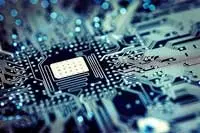Inorganic chemistry could enable quantum computing, team claims
 Researchers from The University of Manchester claim to have taken a significant step towards creating quantum computers. Its work is said to show that large molecules made of nickel and chromium could store and process information in the same way as bytes are used in digital computers.
Researchers from The University of Manchester claim to have taken a significant step towards creating quantum computers. Its work is said to show that large molecules made of nickel and chromium could store and process information in the same way as bytes are used in digital computers.
In a paper published in the science journal Chem, the team claims it is possible to use supramolecular chemistry to connect qubits. This approach would generate several kinds of stable qubits that could be connected together into structures called ‘two qubit gates’.
“We have shown that the chemistry is achievable for bringing together two-qubit gates and that the gates can be assembled,” explained inorganic chemist Professor Richard Winpenny. “The next step is to show that they work.”
Prof Winpenny’s team has addressed this problem through algorithmic designs, in which large molecules are combined to to create two qubits and a bridge between the units – a ‘quantum gate’.
Studies are said to show that quantum information is stored in the individual qubits for long enough to allow the information to be manipulated – the so called coherence time.
Prof Winpenny added: “The real problem seems to be whether we could put these qubits together at all. But we showed that connecting these individual qubits doesn’t change the coherence times, so that part of the problem is solvable.”
Author
Graham Pitcher
Source: www.newelectronics.co.uk
 Researchers from The University of Manchester claim to have taken a significant step towards creating quantum computers. Its work is said to show that large molecules made of nickel and chromium could store and process information in the same way as bytes are used in digital computers.
Researchers from The University of Manchester claim to have taken a significant step towards creating quantum computers. Its work is said to show that large molecules made of nickel and chromium could store and process information in the same way as bytes are used in digital computers.